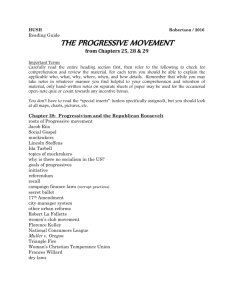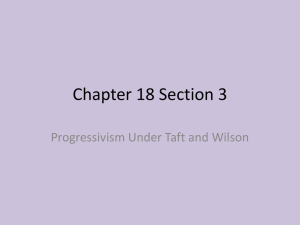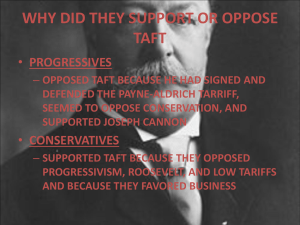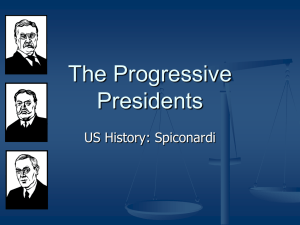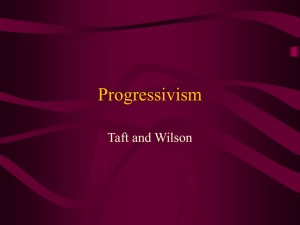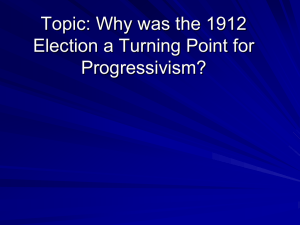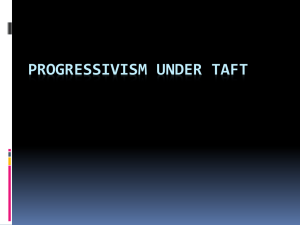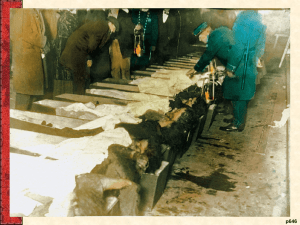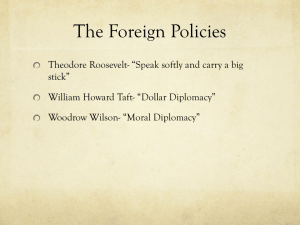Chap 9, Sect 4-5 Progressivism Under Taft & Wilson
advertisement
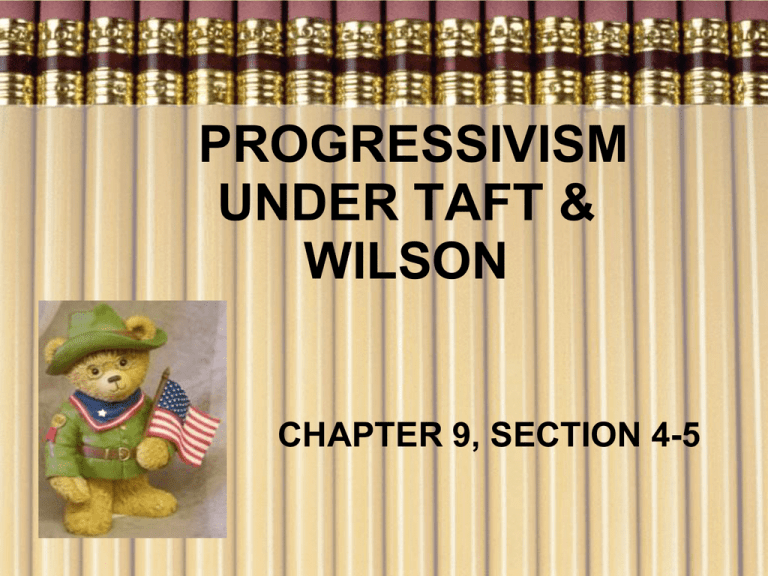
PROGRESSIVISM UNDER TAFT & WILSON CHAPTER 9, SECTION 4-5 PROGRESSIVISM UNDER PRESIDENT TAFT • Republican William Howard Taft easily defeated Democrat William Jennings Bryan to win the 1908 presidential election • Among his accomplishments, Taft “busted” 90 trusts during his 4 years in office Taft, right, was Roosevelt’s War Secretary TAFT LOSES POWER • Taft was not popular with the American public nor reform minded Republicans • By 1910, Democrats had regained control of the House of Representatives Taft called the Presidency, “The lonesomest job in the world” 1912 ELECTION • Republicans split in 1912 between Taft and Teddy Roosevelt (who returned after a long trip to Africa) • Convention delegates nominated Taft • Some Republicans formed a third party – The Bull Moose Party and nominated Roosevelt • The Democrats put forward a reform - minded New Jersey Governor, Woodrow Wilson Republicans split in 1912 WILSON’S NEW FREEDOM • As America’s newly elected president, Wilson moved to enact his program, the “New Freedom” • He planned his attack on what he called the triple wall of privilege: trusts, tariffs, and high finance W. Wilson U.S. President 1912-1920 CLAYTON ANTITRUST ACT • In 1914 Congress enacted the Clayton Antitrust Act which strengthened the Sherman Act • The Clayton Act prevented companies from acquiring stock from another company (Anti-monopoly) • The Act also supported workers unions FEDERAL TRADE COMMISSION FORMED Today the FTC has been working on protecting consumers from ID theft • The FTC was formed in 1914 to serve as a “watchdog” agency to end unfair business practices • The FTC protects consumers from business fraud FEDERAL INCOME TAX ARRIVES • Wilson worked hard to lower tariffs, however that lost revenue had to be made up • Ratified in 1916, the 16th Amendment legalized a graduated federal income tax WOMEN WIN SUFFRAGE • Native-born, educated, middle-class women grew more and more impatient • Through local, state and national organization, vigorous protests and World War I, women finally realized their dream in 1920 The 19th Amendment gave women the right to vote in 1920 LIMITS OF PROGRESSIVISM • While the Progressive era was responsible for many important reforms, it failed to make gains for African Americans • Like Roosevelt and Taft, Wilson retreated on Civil Rights once in office The KKK reached a membership of 4.5 million in the 1920s Partner Question, Chapter 9, Sections 4-5 • Explain why Roosevelt, Taft, and Wilson found Civil Rights a difficult issue to make substantial progress in during the progressive era? • Which president: Roosevelt, Taft, or Wilson, had the most lasting impact on the major progressive issues at the turn of the 20th century? Explain you choice. (Test Question)
